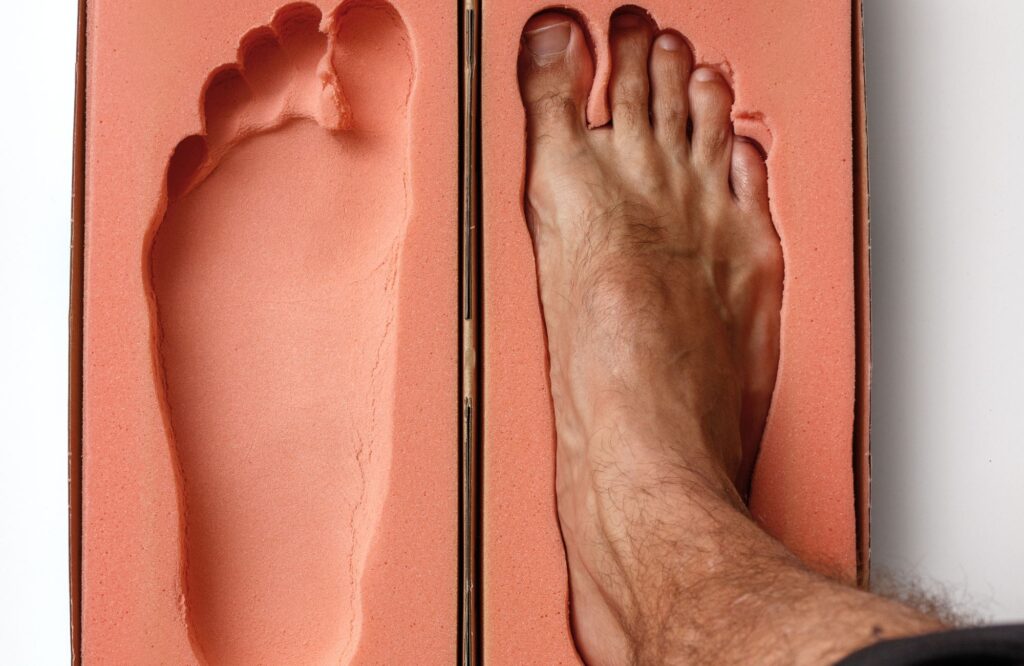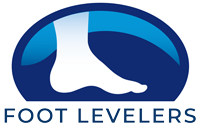Do Foot Levelers Really Work?
Did you know that 75% of Americans will experience foot problems at some point in their lives? Yet many continue to walk around in pain, unaware that a solution might be just an insole away. If you’ve been struggling with foot pain, back discomfort, or alignment issues, you’ve likely encountered recommendations for custom orthotics. But among the various options available, one name frequently comes up: Foot Levelers.
The question on many people’s minds remains: do Foot Levelers really work, or are they just another expensive solution promising relief without delivering results? Let’s dive into the evidence, examine patient outcomes, and uncover the truth about these popular custom orthotics.
Understanding Foot Levelers Custom Orthotics
Foot Levelers custom orthotics are medical-grade devices designed to match your unique foot structure using patented 3 Arch Advantage technology. Unlike standard inserts, they support all three arches, inner, outer, and transverse, to create a stable foundation that improves alignment throughout the body.
These orthotics come in options for everyday shoes, athletic footwear, flip flops, and built-in shoe support. Made from flexible yet durable materials, they move with your feet to support natural motion and reduce strain.
A 2017 study in the Archives of Physical Medicine and Rehabilitation found Foot Levelers reduced low back pain by 34.5 percent, even without other treatments. Their advanced weight-bearing scanning captures how your feet function while standing, making the fit more accurate than traditional casting methods.
Conditions Effectively Treated with Foot Levelers
Foot Levelers can provide relief for a wide range of conditions that affect not only the feet, but also the knees, hips, back, and even shoulders. That’s because the feet serve as the foundation of the entire musculoskeletal system. When that foundation is unstable, it can trigger a chain reaction of misalignment, stress, and pain throughout the body.
Foot-Specific Conditions:
- Plantar fasciitis (inflammation of the plantar fascia)
- Flat feet (fallen arches)
- High-arch feet that lack natural shock absorption
- Bunions and hammertoes
- Morton’s neuroma
- Metatarsalgia (forefoot pain)
- Heel pain
Body-Wide Conditions:
- Lower back pain
- Hip pain
- Knee pain (including runner’s knee)
- Ankle instability
- Shoulder pain related to postural compensation
- General discomfort from prolonged standing or walking
How Foot Levelers Help
Foot Levelers orthotics are designed to correct underlying biomechanical problems, not just provide cushioning. When the arches of the foot collapse or function improperly, it causes the ankles to roll, the knees to shift inward, and the hips and spine to compensate. Over time, this misalignment leads to chronic pain and joint strain.
By supporting all three arches of the foot, Foot Levelers creates a balanced, symmetrical foundation. This improves weight distribution, reduces excessive joint stress, and encourages proper posture. In conditions like plantar fasciitis, custom orthotics reduce the strain on the fascia by providing arch support and cushioning the heel. For flat feet, they help control overpronation. For high arches, they offer shock absorption to minimize pressure on the forefoot and heel.
The Foot Levelers Fitting Process
Getting fitted for Foot Levelers is a precise, technology-driven process:
- Initial Assessment: A healthcare provider evaluates your gait and posture and discusses your symptoms and activity level.
- 3D Digital Scan: Unlike the messy plaster casts or basic foam box impressions used by many podiatrists, Foot Levelers utilizes advanced 3D scanning technology that captures over 16 points of measurement on each foot while you’re standing.
- Biomechanical Analysis: The scan data is analyzed to identify specific areas of weakness, imbalance, or excessive pressure.
- Custom Design: Your orthotics are designed based on this analysis, with specific corrections built in to address your unique needs.
- Precision Manufacturing: The orthotics are crafted using high-quality materials selected for your activity level and specific foot conditions.
- Fitting and Adjustment: Once your orthotics arrive (typically within 1-2 weeks), your provider will ensure they fit properly in your shoes and make any necessary adjustments.
The entire process is non-invasive and typically takes less than 30 minutes for the initial assessment and scan. The difference between this technology-based approach and traditional casting is significant – the weight-bearing scan captures your feet as they actually function in real life, not in an artificial, non-weight-bearing position.
Longevity and Care of Foot Levelers
One reason Foot Levelers are worth the investment is their long-lasting durability. With proper care, these custom orthotics can last anywhere from 2 to 5 years, depending on factors like your activity level, body weight, shoe type, and how often and consistently you wear them.
To extend their lifespan, clean them regularly with a damp cloth, let them air dry if they get wet, and avoid exposing them to direct heat or sunlight. It’s also best to remove them from your shoes when not in use and check for signs of wear, such as cracking or loss of cushioning. Proper maintenance helps ensure continued support and comfort over time.
Who Should Consider Foot Levelers?
You might benefit from Foot Levelers custom orthotics if you experience foot pain during or after activity, have flat feet or high arches, or suffer from chronic back, hip, or severe knee pain without a clear cause. Other signs include uneven wear on your shoes, working in jobs that require long hours on your feet, being active in high-impact sports, or finding little relief from store-bought inserts. Custom orthotics can also be a proactive way to prevent future issues caused by poor foot mechanics.
More specific indicators that orthotics may be right for you include morning heel pain (a common symptom of plantar fasciitis), pain that worsens throughout the day, frequent ankle sprains, recurring calluses or corns, and lower back pain that increases when standing. These symptoms often point to biomechanical imbalances that custom orthotics are designed to correct.
Conclusion
So, do Foot Levelers really work? For many individuals dealing with chronic foot, knee, hip, or back pain, the answer is yes. These custom orthotics are backed by research, built with advanced scanning technology, and designed to correct structural imbalances from the ground up. By supporting all three arches of the foot, they help create better alignment, reduce strain, and improve overall comfort in daily movement.
At Sirota Chiropractic in White Plains and Stamford, we offer custom orthotics designed to relieve pain, improve posture, and restore natural movement. Using advanced digital scanning, each pair is tailored to your unique foot structure to address issues like flat feet, high arches, and chronic discomfort in the feet, knees, hips, or back. Contact us today to schedule your consultation and take the first step toward better alignment and pain-free living.
FAQs
How do foot levelers work?
Foot Levelers work by providing custom support to all three arches of your foot (not just one), creating a stable foundation that improves alignment throughout your entire body. They use flexible materials that adapt to your movement while still maintaining proper support, distributing pressure evenly, and reducing strain on painful areas.
How long do foot levelers last?
Foot Levelers typically last between 2-5 years, depending on your activity level, weight, and how well you maintain them. Athletes and very active individuals may need replacements sooner (closer to 2 years), while less active people might get 5+ years of use with proper care.
How many hours a day should you wear orthotics?
During the initial break-in period of 1-2 weeks, start with 2-3 hours daily and gradually increase to full-day wear. After your adjustment period, for maximum benefit, you should aim to wear your Foot Levelers whenever you’re on your feet – ideally 8-12 hours daily or whenever you’re wearing shoes.
Do foot orthotics actually work?
Yes, research shows that quality custom orthotics like Foot Levelers can effectively reduce pain and improve function for many people. Scientific studies demonstrate they can reduce low back pain by 34.5%, and they’re particularly effective for conditions like plantar fasciitis, flat feet, and alignment issues that cause pain throughout the body.



